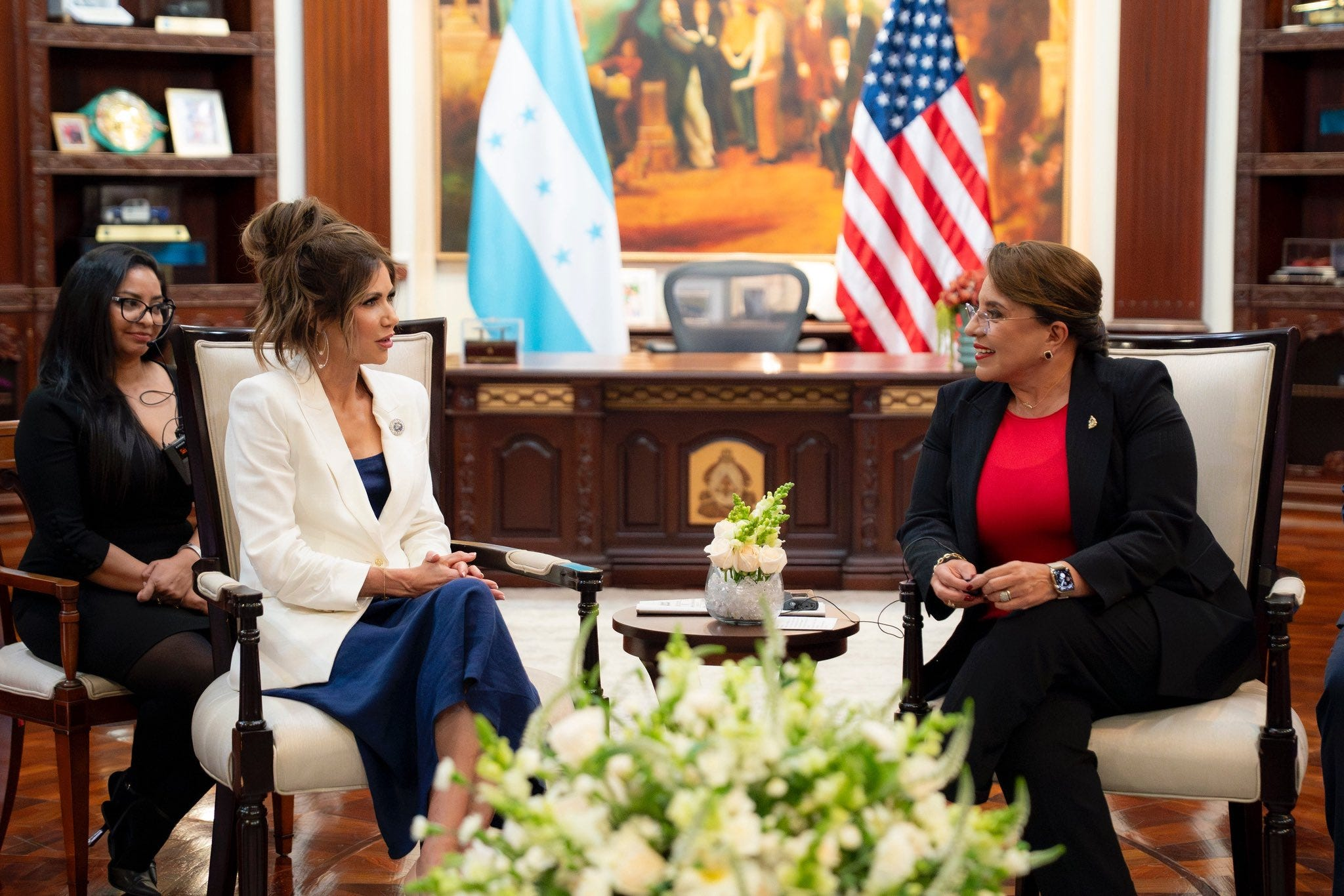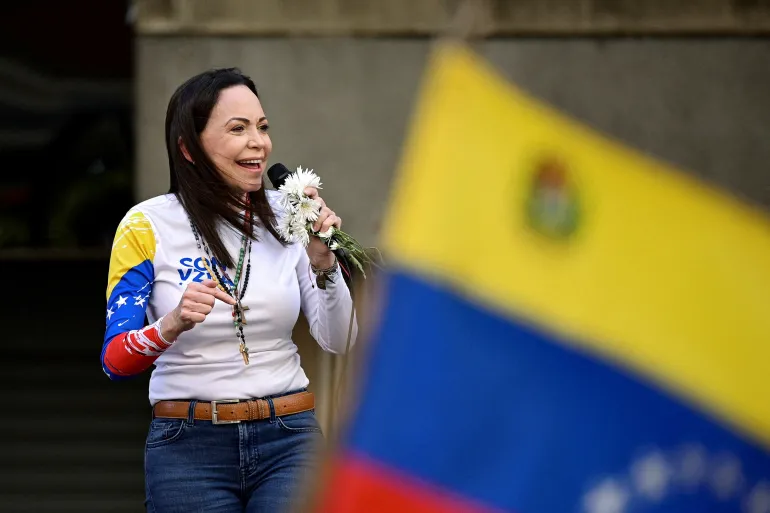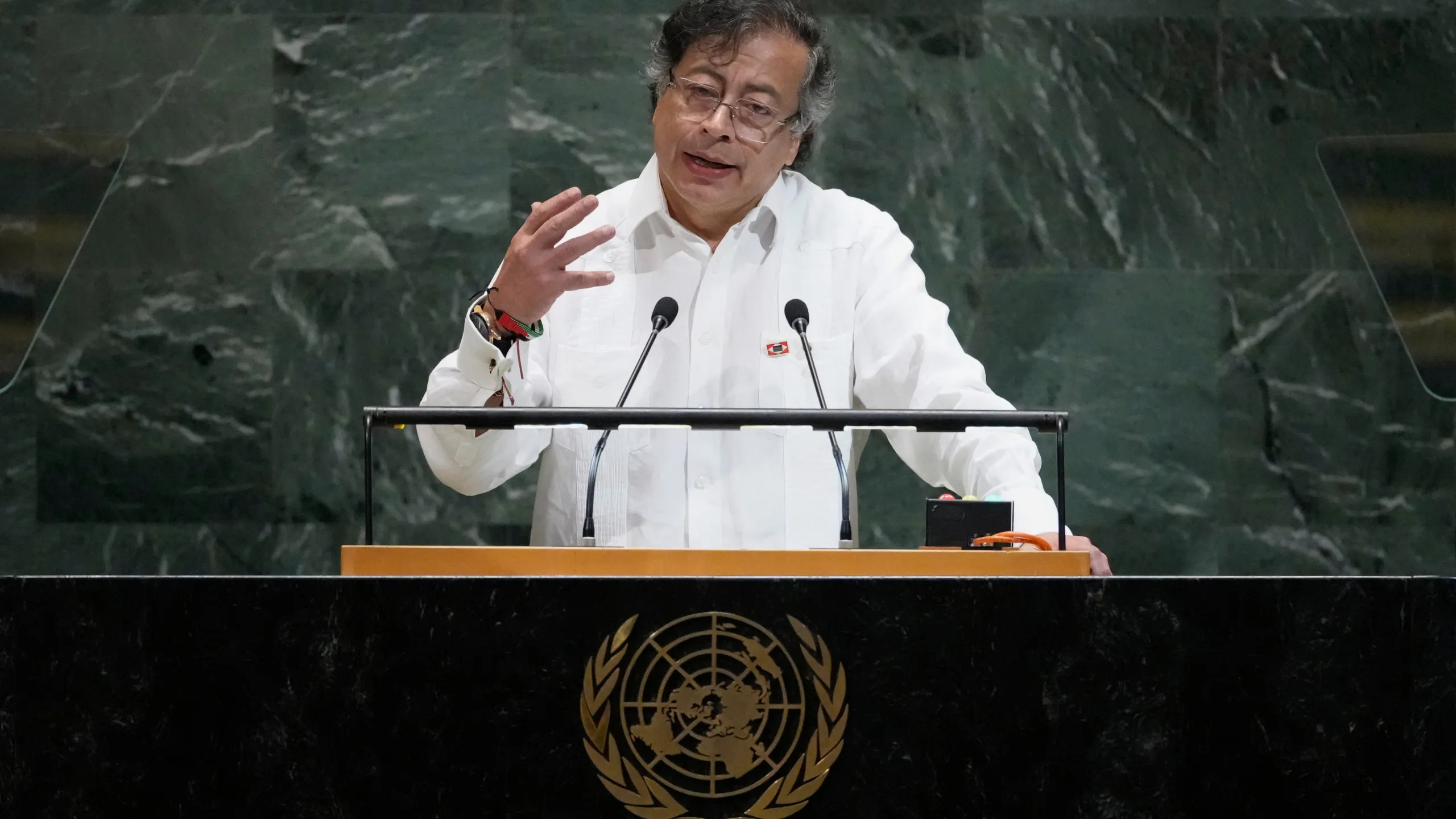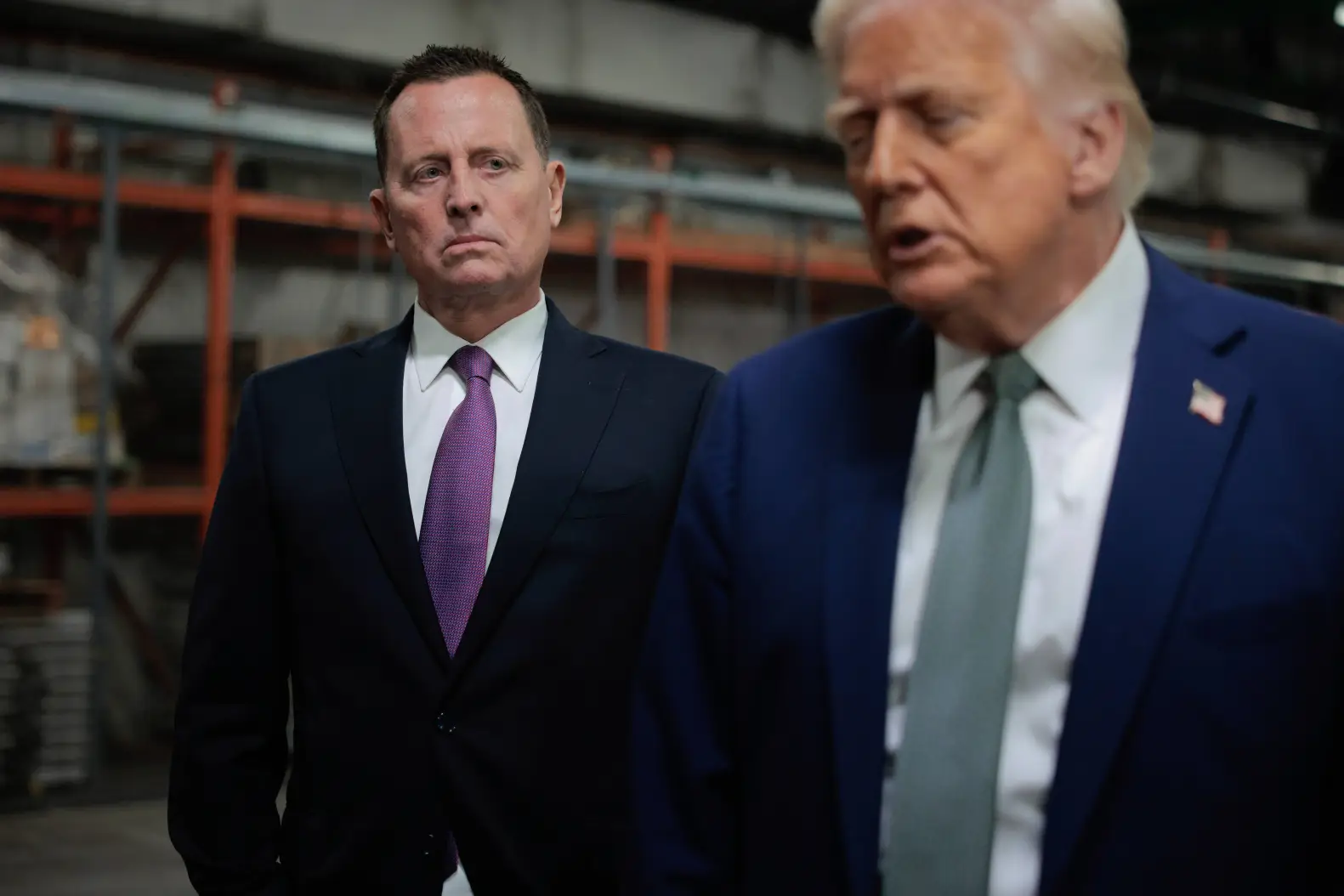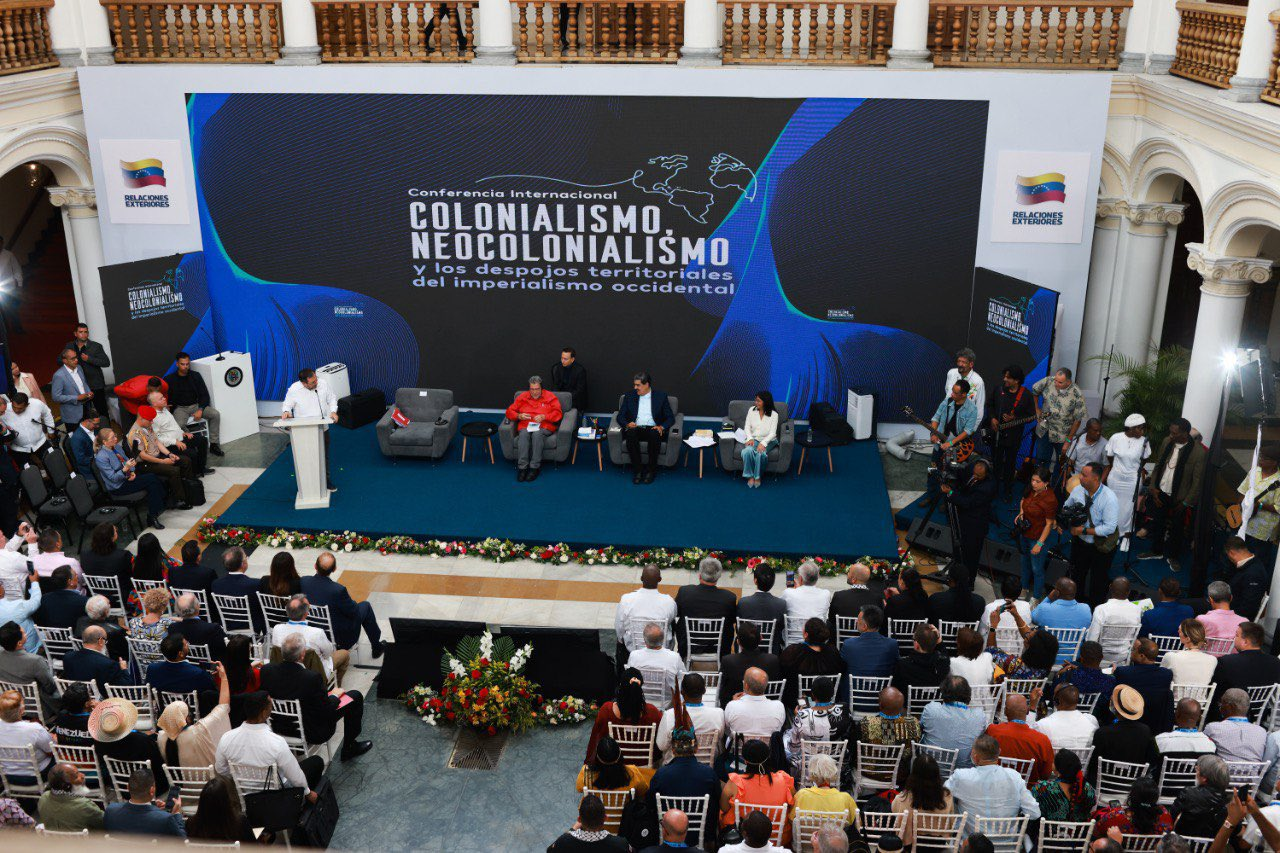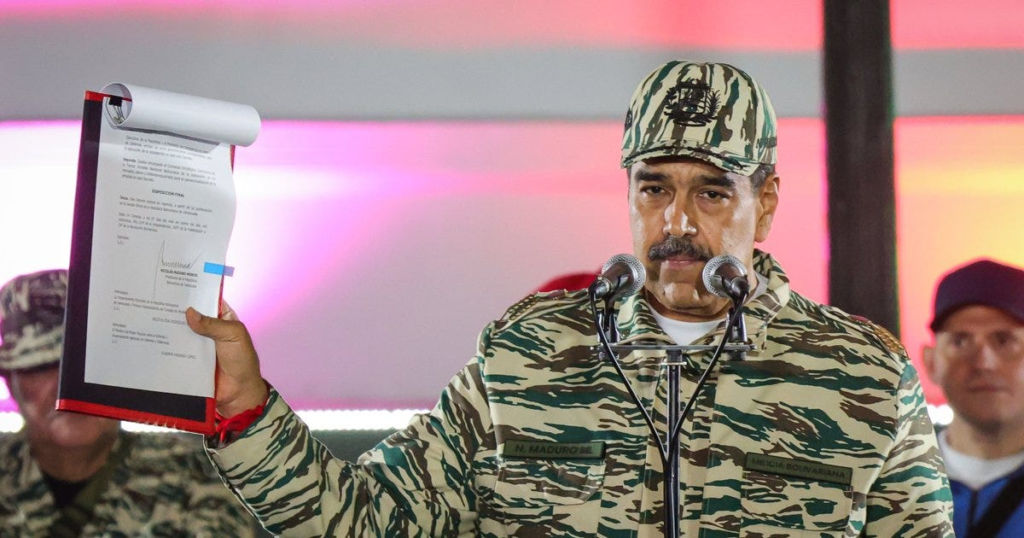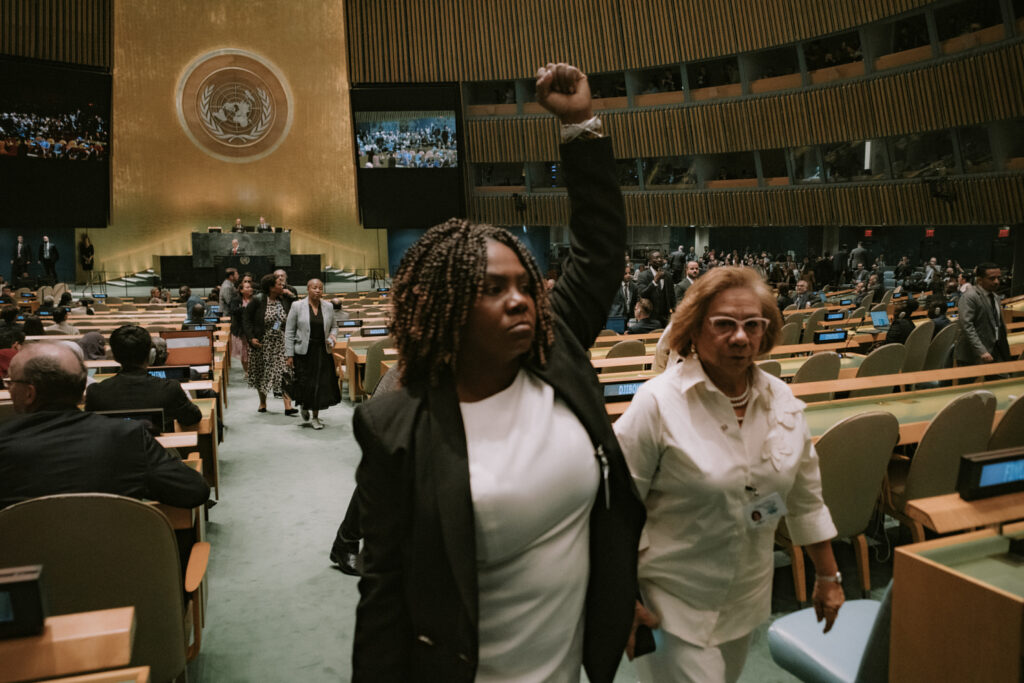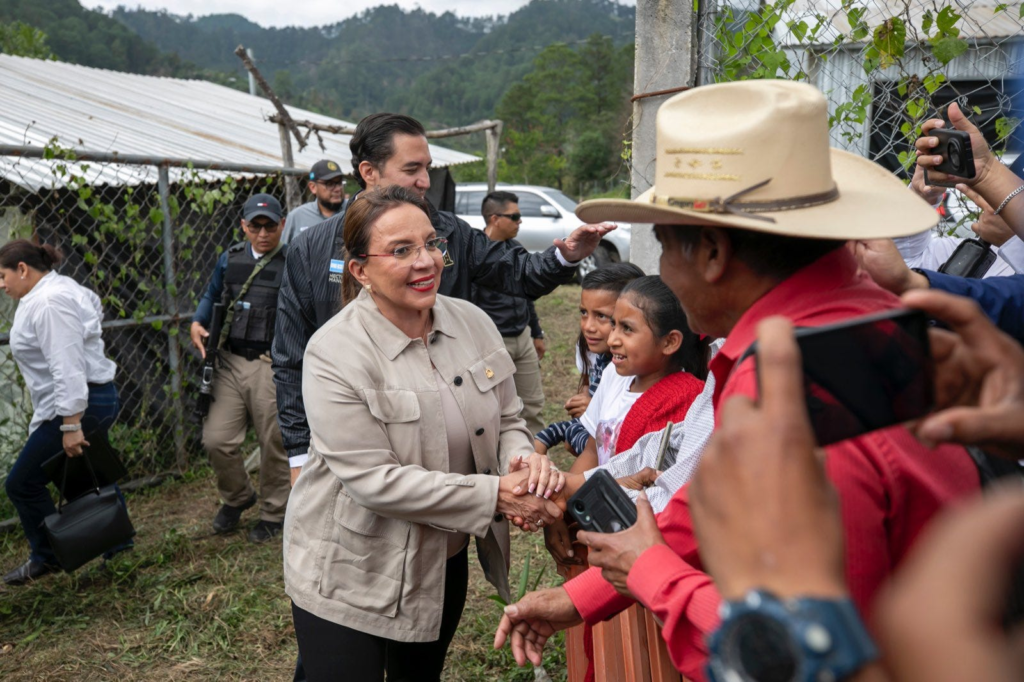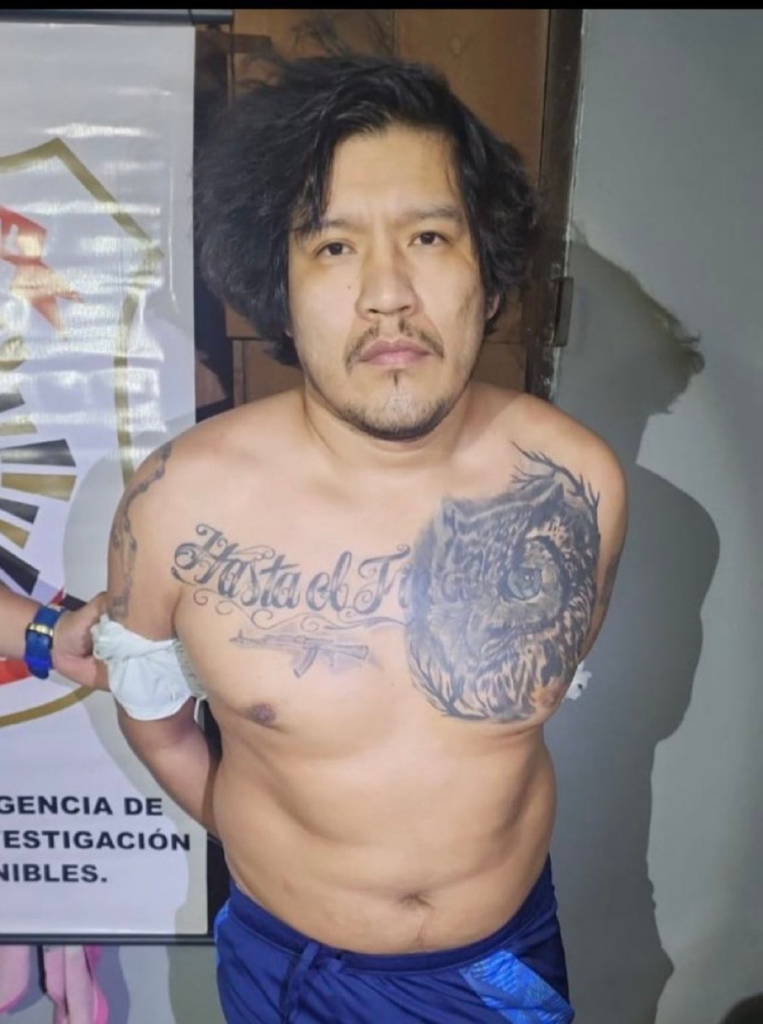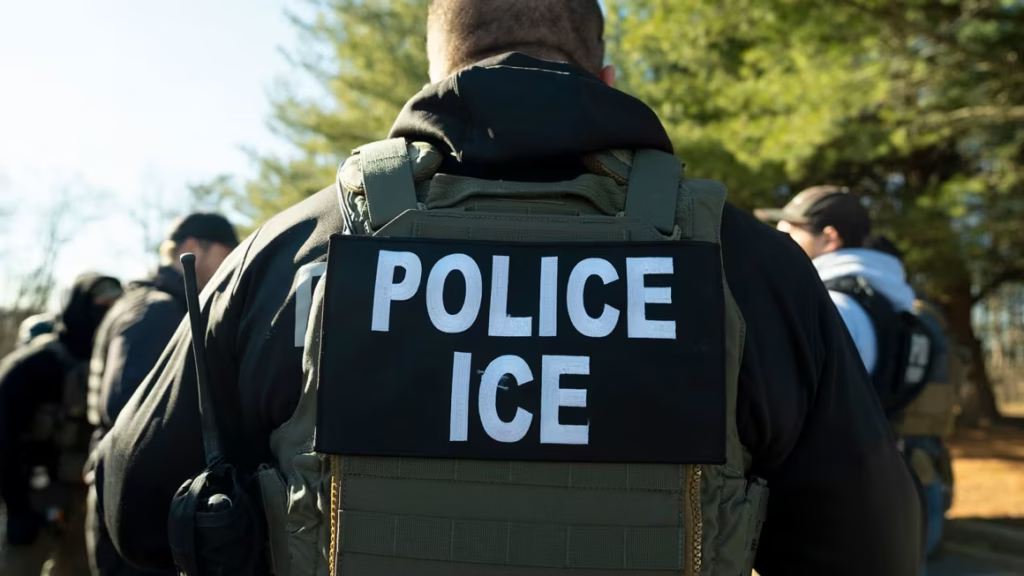On the backend of a crucial set of international agreements between the U.S. government and several of its counterparts in Central America, a major Supreme Court decision came down on Friday that favored President Trump’s challenge against the expansive power that federal judges have asserted during the months of his second term in issuing national injunctions on White House Executive Orders. However, one other decision was handed down earlier this week on Monday that gives the president authorization to resume its campaign of mass deportations of undocumented migrants to “third countries.” These third countries are not the countries of origin that many of these deported migrants call home.
After a roundtrip from Central America, U.S. Secretary of Homeland Security Kristi Noem, along with the Trump administration is touting the visit as a significant success, bringing with her signed agreements with Honduras and Guatemala that could potentially add these nations to the list of final destinations for refugees and asylum-seekers subject to deportation from the United States.
The agreements would essentially offer refugee status to people who would normally be seeking asylum in the United States. The agreements are a continuation of several agreements that were made during the first Trump administration between Honduras, Guatemala, and El Salvador. Agreements with the Salvadoran government of President Nayib Bukele have since expanded recently to include the deportation of violent criminals from the United States to be detained, confined, and imprisoned in terrorist detainment facilities like the infamous CECOT located in Tecoluca in the San Vicente Department of El Salvador.
Here is a breakdown of Secretary Noem’s recent visit to the region, and what you need to know:
Panama: For the first leg of her trip, Secretary Noem met with the President of Panama José Raúl Mulino to discuss the continued collaboration between the two governments on immigration issues.
U.S. relations with Panama got off to a rocky start after President Trump’s reelection to his second term when the White House raised concerns over China’s growing presence along the Panama Canal. Formerly under U.S. control, the canal was transferred to the Panamanians in 1977 under the Carter administration with full authority over the management and operation of the property going into effect in 1999. Panama retains complete sovereignty over the canal.
To push back against Chinese expansion, Secretary of Defense Pete Hegseth signed a bilateral memorandum with the Panamanian government in early April to deepen security cooperation in the region and to establish a heavier footprint of U.S. military personnel to utilize existing Panamanian military bases to counter the “Chinese threat.” The agreement also ensures a “first and free passage” clause for U.S. ships to transit the canal. The Trump administration has been criticized for its heavy-handed response to “perceived” Chinese influence in the canal. However, the administration has affirmed that Chinese influence is a legitimate threat to U.S. interests in the region. Hegseth reiterated the president’s concerns during the visit by stating, “[China’s] growing and adversarial control of strategic land and critical infrastructure in this hemisphere cannot and will not stand.“
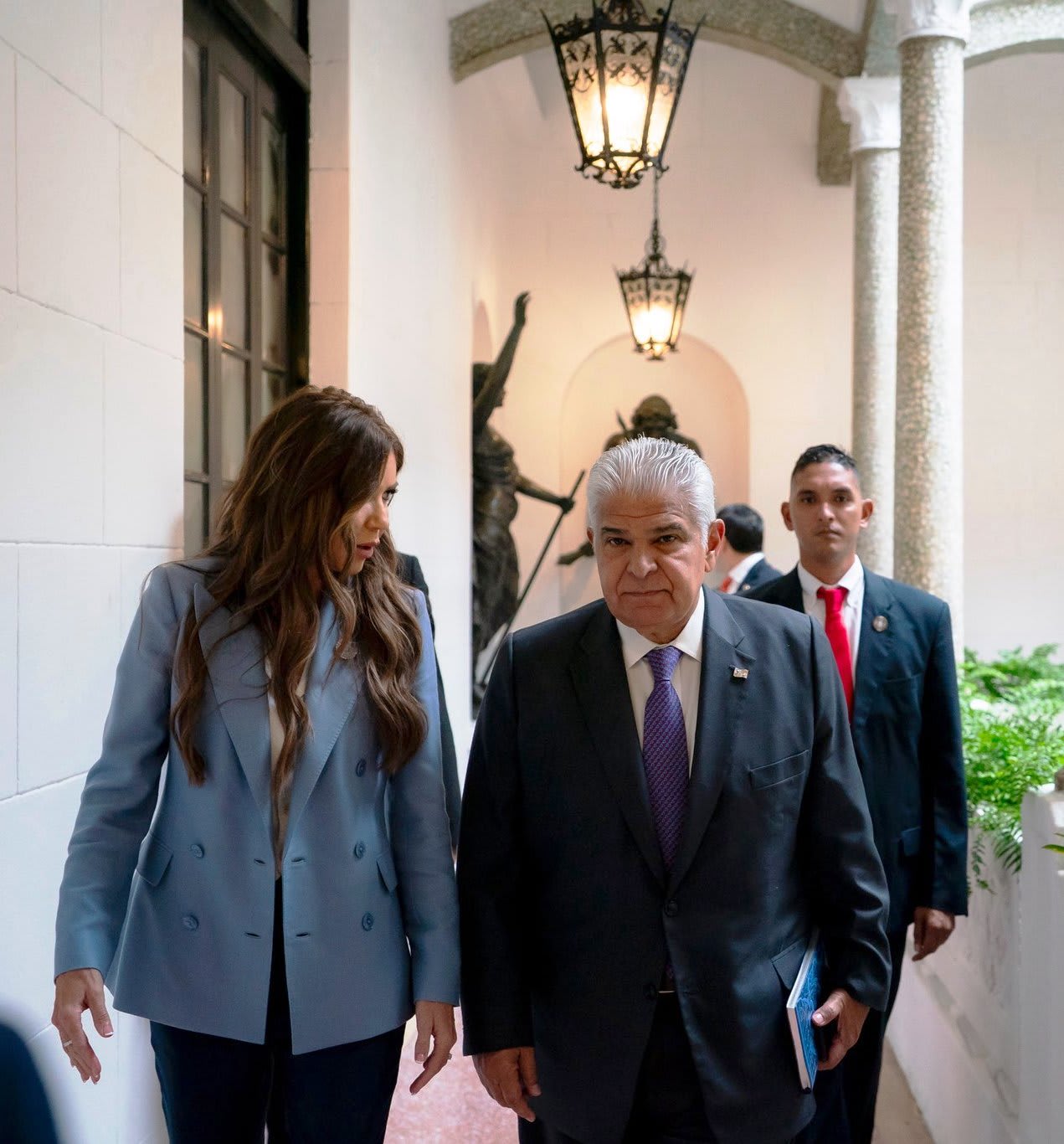
On Tuesday, June 24 Noem met with the President of Panama to discuss expanding opportunities to cooperate on issues concerning the expedited removal of undocumented migrants. The U.S. government has designated $14 million for a repatriation program where Panamanian authorities would facilitate the flights of migrants back to their home countries. The agreement would save U.S. taxpayers half of what it costs the U.S. government to deport migrants from U.S. soil, according to Noem’s Department of Homeland Security.
The United States will also be committing an additional $7 million to these operations. The agreement is meant to curb the potential for increasing mass migration through the region.
Costa Rica: On Wednesday, the 25th of June, Noem then visited Costa Rica, and met with President Rodrigo Chaves Robles in San José. The two governments were focused on deepening bilateral ties through enhanced collaboration on security issues, including measures to limit the flow of illicit narcotics by transnational criminal drug organizations.
Costa Rica is in the throes of a concerning rise in violent crime, exacerbated by the presence of various criminal groups competing for territory to control the lucrative drug routes in the region. The U.S. also offered assistance to Costa Rican authorities to help monitor the entry of travelers and imported goods into the country by enhancing the presence of technology in their operations. A letter of intent was signed between the two governments that included a new “biometric sharing agreement” to clamp down on “major migrant smuggling networks” from China and Southeast Asia.
The application of non-invasive biometrics technology to monitor the flow of migrants has come under fire by international legal associations for its privacy concerns and intrusiveness. Countries in Latin America have been criticized by the U.S. government after signing similar agreements and then not using the technology to enforce immigration protocols with transiting migrants. Equipment has been found still packaged and sitting in warehouses in earlier cases.
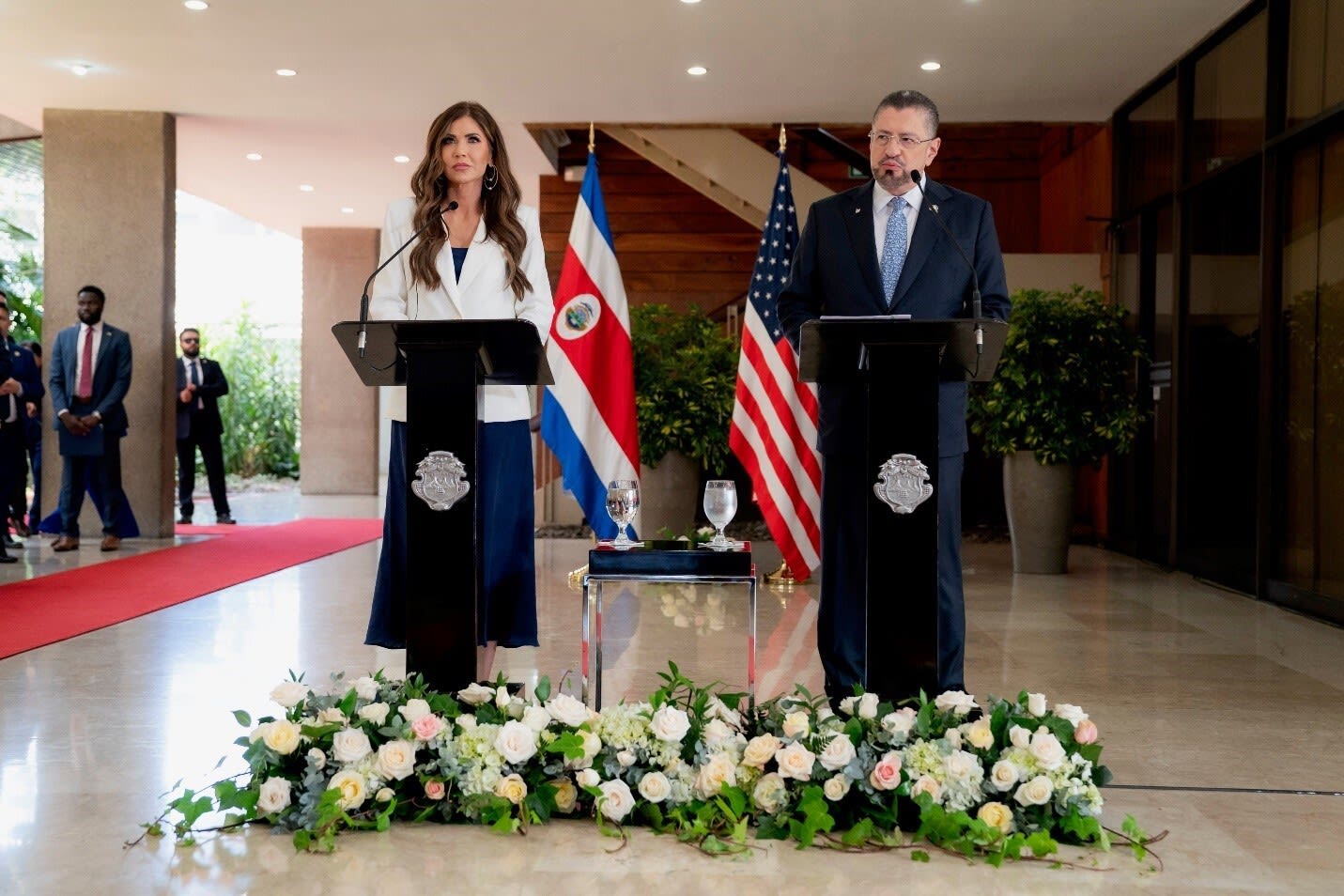
Honduras: Noem also met with Honduran President Xiomara Castro later Wednesday to discuss immigration and border security during their first meeting. The left-wing government of Castro was very public in her denunciation of President Trump’s immigration policies and his crackdown on deportations earlier on in his second term. Castro abruptly ended a longstanding extradition treaty between the two governments in 2023, receiving tremendous criticism from the U.S. The treaty had been in place since 2014 but was retracted in 2023 following a political scandal that involved a Castro family member.
The Castro government was hoped to be a long-awaited deviation by the Honduran people, from the elite corrupt establishment of the Honduran political class – a government thought to be more representative of the people. Those perceptions faded after a high-ranking official in the Castro government (Castro’s brother-in-law) admitted to meeting with leaders of a criminal drug organization who offered to fund the political campaigns of liberal politicians in Castro’s party.
In January, Castro, to protest the wide-ranging deportation strategy of President Donald Trump, threatened to shut down the Soto Cano Air Base in Comayagua. Soto Cano maintains a U.S. military presence from which personnel conduct anti-drug operations throughout the region.
Honduran Foreign Affairs Minister Javier Bú Soto has stated that Honduras signed a letter of intent with Noem toward reaching an agreement on sharing biometric data from people transiting the country with the U.S. government. The two countries also signed an agreement that will allow migrants to request protection in Honduras, an effort to limit the flow of migration further north across the U.S. southern border.
Honduras is responsible for one of the highest homicide rates in the Western Hemisphere – a poor country with a lack of natural resources and historic corruption, criminal organizations like MS-13 and Barrio 18 have control of large swaths of territory where they terrorize the population through murder, drug trafficking operations, kidnapping, and extortion. Honduras is one of the most dangerous places in the region for journalists.
Guatemala: On the last leg of her trip, U.S. Secretary of Homeland Security Kristi Noem touched down in Guatemala City on Thursday, welcomed by Guatemalan President Bernardo Arévalo who recently returned from a trip to Taiwan to strengthen trade and security ties with the South Asian chip producer. Guatemala is one of the last countries in Latin America that recognized the island’s territorial sovereignty under the growing shadow of Chinese expansion.
It was announced that the two governments of Guatemala and the United States signed an agreement that echoed the remit of the one that had been reached on Wednesday in Tegucigalpa. Similarly, the agreement with Guatemala would potentially offer the opportunity for migrants and asylum-seekers to request refuge in the country as the Trump administration picks up its pressure campaign to limit the volume of undocumented migrants seeking passage across the U.S. southern border. However, Guatemala’s communications office later commented that a “third country agreement or any immigration agreement” had not been reached.
Any agreement that is reached on immigration will be hoped by the Trump administration to expand its flexibility in the deportation of migrants from the United States to Guatemala, a country that is more lenient with immigration enforcement, but a country that does not possess the resources to provide sufficient services to accommodate these migrant families. Arévalo’s government is also dealing with public demands to limit its own flow of migrants in the country. Guatemala is used as a major transit point for migrants to reach North America.
Guatemala is also experiencing a rise in violent crime from the remnants of ruthless criminal organizations like MS-13 and Barrio 18 that have fled El Salvador after the government of Nayib Bukele’s brutal crackdown on members deemed “domestic terrorists.” The third country issue – because of hostile public opinion to the migrant problem in Guatemala – is going to be a tougher sell for the Arévalo government, thus posing difficulties for the Trump administration as well in finding a deal that could be reached.
Noem later attended a public ceremony with Guatemalan Interior Minister Francisco Jimenez for the signing of a separate agreement that will establish a Joint Security Program that will provide U.S. Customs and Border Protection agents in Guatemala City who will help train local Guatemalan agents to screen for “terrorist suspects” transiting the country.

